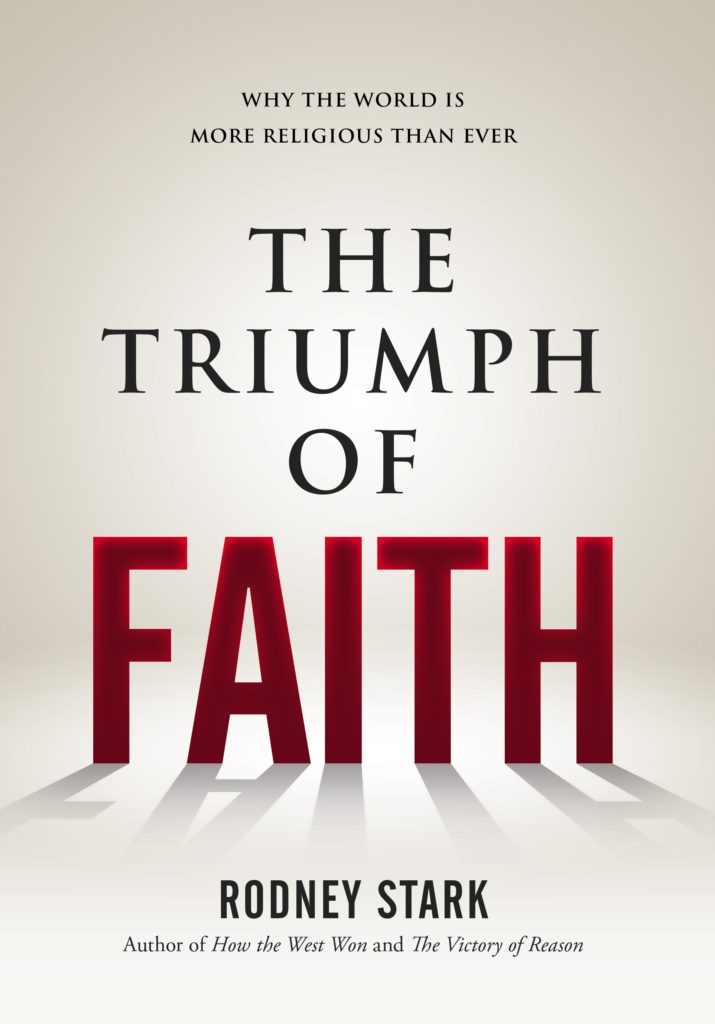
Rodney Stark is a terrific writer, and he has a new book, The Triumph of Faith. "[It] explodes the myth that people around the world are abandoning religion. Stark marshals an unprecedented body of data to reveal that the world is more religious than it’s ever been—and why everyone gets the story wrong." Although 95% of Congress checks the box for Christian (90%) or Jewish (5%), for the general public it's between 75-80%. Meanwhile the churches that built this nation, that supported the great 19th century causes, are struggling to survive. Methodists, Presbyterians, Congregationalists (UCC), Anglicans, Lutherans, etc. are struggling to stay alive with aging congregations hanging out banners about diversity and inclusiveness--something young people can get by joining an athletic club or chess interest group. Other churches have exploding congregations.
(1) “Protestantism is as strong as ever in America—only the names have changed.”
(2) “Not many years ago,
a select set of American denominations was always referred to as the
Protestant ‘Mainline’ … Today that designation, though still commonly
used, is out of date; the old Mainline has rapidly faded to the
religious periphery, a trend that first was noticed more than forty
years ago.”
(3) “Some religious
institutions—but not all—fail to keep the faith. In an unconstrained
religious marketplace, secularization is a self-limiting process: as
some churches become secularized and decline, they are replaced by
churches that continue to offer a vigorous religious message. In effect,
the old Protestant Mainline denominations drove millions of their
members into the more conservative denominations.”
(4) “The wreckage of the
former Mainline denominations is strewn upon the shoal of a modernist
theology that began to dominate the Mainline seminaries early in the
nineteenth century. This theology presumed that advances in human
knowledge had made faith outmoded… Eventually, Mainline theologians
discarded nearly every doctrinal aspect of traditional Christianity.”
(5) “Aware that most
members reject their radical political views, the Mainline clergy claim
it is their right and duty to instruct the faithful in more
sophisticated and enlightened religious and political views. So every
year thousands of members claim their right to leave. And, of course, in
the competitive America religious marketplace, there are many appealing
alternatives available.”
(6) “Even though so many
have left, most of the people remaining in the former Mainline pews
still regard the traditional tenets of Christianity as central to their
faith. As a result, the exodus continues.”
(7) “Many liberals have
attempted to make a virtue of the Mainline decline, claiming that the
contrasting trends reflect the superior moral worth of the Mainline…
Meanwhile, the Mainline shrinks, and conservative churches grow.”
From the review at Juicy Ecuminism by Joseph Rossell
From the review at Juicy Ecuminism by Joseph Rossell





No comments:
Post a Comment